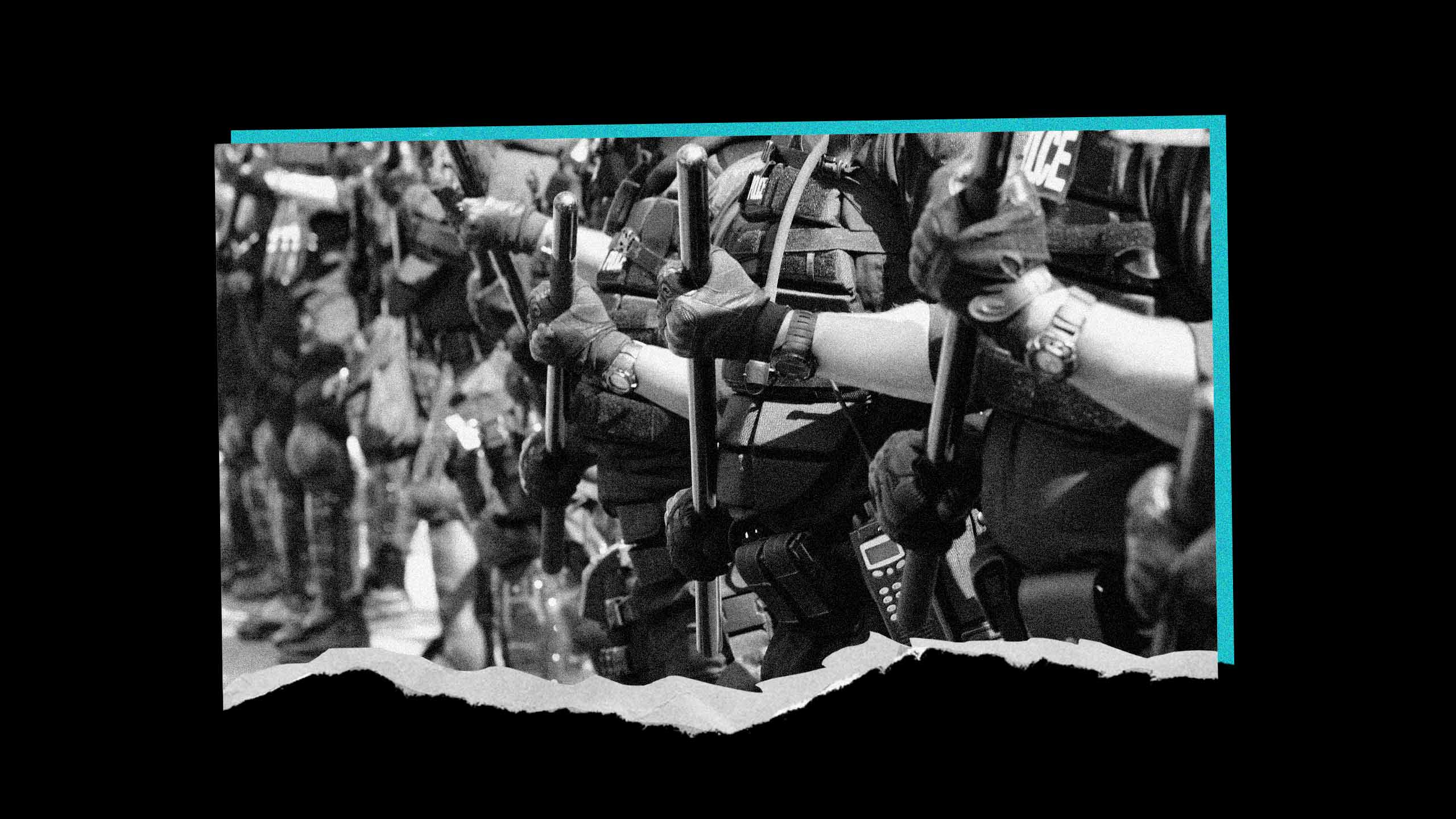In 2022, the Canadian Press reported on an alarming increase in police shootings—both fatal and non-fatal—across Canada. Here in B.C. alone, they found that police shot at 24 people, killing 14 people in 2022. In this year, fatal shootings in B.C. nearly tripled.
One of the people killed by police in B.C. last year was Dani Cooper, also known to friends, family and community as Maiken and Dee Cee. Dani was a 27-year-old queer organizer and activist, known for solidarity work in communities across Metro Vancouver and on Vancouver Island, as well as their work within Unitarian congregations. Their death—at the hands of the North Vancouver RCMP—is another stark reminder of what happens when police act as first responders for people experiencing mental distress. Friends and family of Dani haven’t shied away from stating that Dani was killed during a “wellness check,” a term used to describe armed police intervention during an emergency mental health call.
Dani knew police weren’t safe responders to wellness checks. In an interview with CBC, their father, Dennis, describes Dani’s guiding cause as an activist: “the belief that armed police officers weren’t suited to help people in crisis, whether they be homeless, in mental distress or part of another traditionally marginalized community.” Indeed, in a piece published in The Volcano, a now-defunct newspaper published for working-class and Indigenous people across B.C., Dani themself addressed the inappropriateness of policing as a response to mental health crises, asking readers to “pause and question a system that pushes those with diagnosis into the streets through lack of services and poverty mandated by the government through low disability rates.” Dani asked readers to “[r]aise the rates, support the artists and appreciate the joy that madness can bring.”
Wellness checks are dangerous—and can turn fatal. We’ve seen this happen across Canada— often to Black, Indigenous and other racialized community members—like Chantel Moore, a Nuu-chah-nulth woman killed by Edmundston Police; Afro-Indigenous woman Regis Korchinski-Paquet, killed by Toronto Police Services; Ejaz Ahmed Choudhry, a Pakistani-Canadian man killed by Peel Regional Police; Haida Elder Jimmie Johannesson, killed by Surrey RCMP; Kyaw Din, a Burmese immigrant killed by Maple Ridge RCMP—and many other precious people lost to fatal force employed by police officers.
To some extent, even law and policy makers have been forced to recognize this, despite an abiding trust in police at all levels of government (reflected in their annual budgets). Many cities are trying to better involve civilians in mental health calls. In North Vancouver, for example, a Peer Assisted Care Team (PACT) has been deployed to provide “trauma-informed support.” Before PACT, lots of people created informal networks of support, including responses that are explicitly informed by the realities of police violence. In Vancouver, local abolitionist organizers have been critical of PACT, and the Defund 604 Network has highlighted the continued involvement of police in such supposed “civilian-led” projects.
Queer and trans people also know the realities of navigating homophobic, transphobic and cisheteronormative systems that are either not helpful, or actively hostile and harmful. We also know the realities of violence—and that institutions like police don’t keep us safe. In Toronto, the newly appointed chief of police actually oversaw a raid of a lesbian bathhouse in September 2000. Last October, queer organizers in Toronto publicly denounced Myron Demkiw’s appointment. As the fight against police budgets continues, it is time for queer organizations to step up solidarity—and centre queer people who also live at the intersections of being Black, Indigenous, racialized, low-income, illicit substance users or psychiatric labelling. Currently, several cities in Ontario are engaged in budget hearings, including in Toronto, where organizers have launched a month of actions to demand supports—not police—and oppose a $50 million boost to the Toronto Police Services budget.
In response to deep-seated patterns of criminalization, police misconduct and outright hostility, we need action and solidarity from LGBTQ2S+ organizations in response to the realities of police violence. Often, police violence has been met with silence when raised with mainstream queer organizations—illustrating the well-known fissure that queer and trans Black, Indigenous and racialized people experience—marginalization in a community that they built, through direct action, mutual aid and highlighting their lived realities, from margin to centre.
In recent years, some organizers have challenged the queer community to be accountable to people living at multiple intersections and forced public dialogue and action regarding police violence and police budgets. Last summer, there were interventions at Pride festivities—led by coalitions such as Toronto’s No Pride in Policing Coalition. Before that, there were moves by Black Lives Matter organizers in both Toronto and Vancouver to interrupt normative Pride celebrations, specifically calling for the removal of law enforcement from Pride parades.
Dani was a beloved community member—and they were beloved in the queer communities that continue to fight for lost kin. Yet, not a single mainstream queer or LGBTQ2S+ organization has issued a statement in response to their death. Dani did not need to die—their death was made possible by an unjust system of social, economic and political relations that devalues queer life and joy, and justifies the use of police violence against marginalized or “disruptive” individuals.
In 2023, I hope that our community can start stepping up and denouncing police violence as a structural injustice that affects us all. There are queer and trans people who are targeted by police for being unhoused and living on sidewalks or city parks, for land defence, for working in informal economies like sex work, because they are non-white and because they are experiencing distress. We—as queers—need alternatives to police and carceral care. Cops don’t keep queers safe. Dani knew this, deeply, and it flowed through their activism, community and poetry. As they wrote in September 2022, “I’m leaving and I have so much left to pray for, for the deaths to cease, for hope to build, for action to take root.” This poetry excerpt is taken from a chapbook of Dani’s work, published posthumously.


 Why you can trust Xtra
Why you can trust Xtra


